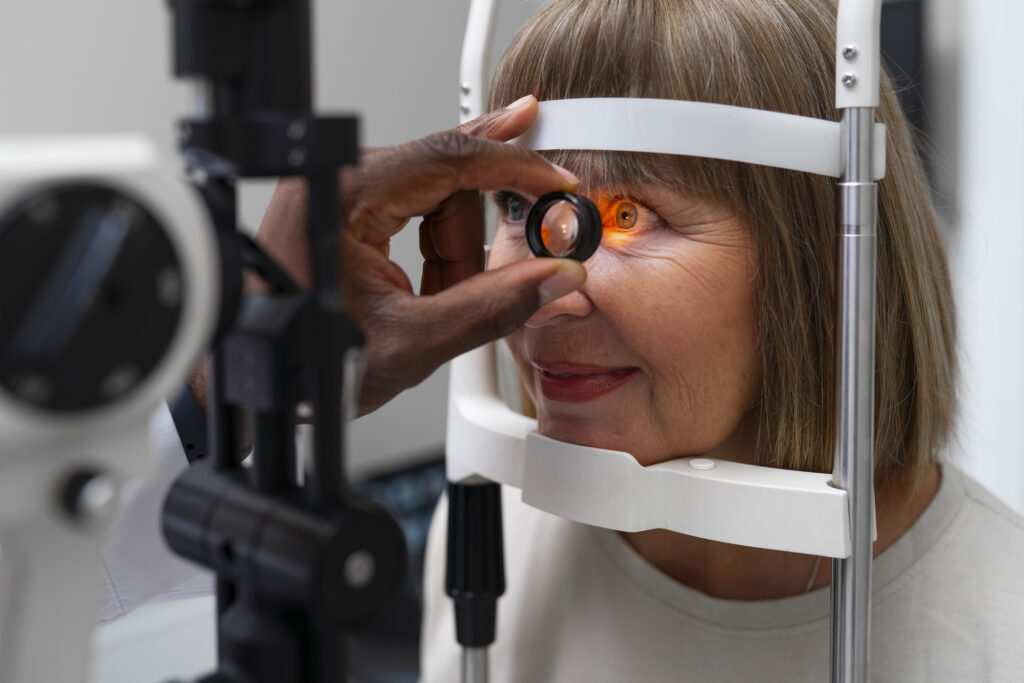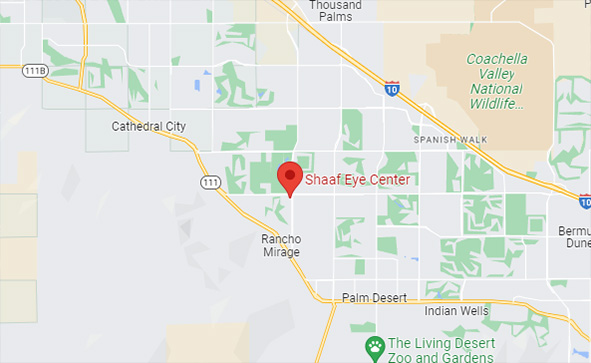Age-related macular Degeneration

Have you ever wondered what your eye doctor sees when they examine your eyes? Your retina, the thin layer of tissue at the back of your eye, plays a crucial role in your ability to see. But beyond that, it can also reveal hidden health conditions—sometimes even before you notice any symptoms. At Shaaf Eye Center, our expert doctor
Dr. Kevin Prendiville, and Dr. Mehdi Shaaf use advanced technology to assess your retinal health and catch issues early.
What Can Your Eye Doctor Detect?
A comprehensive eye exam can help identify various retinal conditions, some of which can lead to vision loss if left untreated. Here’s what we look for:
1. Retinal Detachment or Tears
If you experience sudden flashes of light, an increase in floaters, or a dark curtain across your vision, you may have a retinal tear or detachment. This is a serious condition that needs immediate attention to prevent permanent vision loss. Our retina specialists use advanced imaging to check for any lifting or tearing of the retina.
2. Diabetic Retinopathy
Diabetes can cause damage to the small blood vessels in your retina, leading to blurred vision, bleeding, and in severe cases, blindness. Since diabetic retinopathy often has no early symptoms, routine eye exams are critical for anyone with diabetes. Early detection allows for better management and protection of your sight.
3. Age-Related Macular Degeneration (AMD)
AMD affects your central vision, making activities like reading and recognizing faces difficult. Our doctors check for yellow deposits (drusen) and any bleeding near the macula, which are key indicators of this condition. Catching AMD early can slow its progression and help preserve your vision.
4. Retinal Vascular Occlusions
A blockage in the veins or arteries of your retina can lead to sudden vision loss. This condition often stems from high blood pressure, diabetes, or cardiovascular disease. Our specialists check for swelling, hemorrhages, and other signs to diagnose and treat the issue early
5. Hypertensive Retinopathy
High blood pressure doesn’t just affect your heart—it also impacts your eyes. Over time, elevated blood pressure can damage the blood vessels in your retina, leading to vision problems. A routine exam can reveal these changes before they cause lasting damage.
6. Retinitis Pigmentosa
This inherited condition causes gradual vision loss, starting with difficulty seeing at night and progressing to tunnel vision. While there is no cure, early diagnosis helps manage symptoms and slow progression.
7. Macular Hole or Epiretinal Membrane
If straight lines appear wavy or objects look distorted, you may have a macular hole or an epiretinal membrane. These conditions can be detected with specialized imaging, and early treatment can often improve outcomes.
How Do We Detect Retinal Conditions?
Regular vision monitoring – some patients may need to schedule visits every 3-6 months depending on severity of the disease.
Diagnostic modalities including comprehensive eye exam, fundus photos, optical coherence tomography (“OCT”) of the macula, fundus photography, and fluorescein angiography to rule out and monitor various conditions such as macular degeneration, diabetic retinopathy, and retinal vein occlusions, etc.
Intra-vitreal injections – The injection of anti-VEGF (vascular endothelial growth factor) medications into the vitreous cavity (retina location) can be a highly effective treatment for advanced macular degeneration, diabetic retinopathy, and retinal vein occlusions. Most patients require a series of injections, so they require periodic monitoring to evaluate when additional treatments with the anti-VEGF agents are needed.
Laser treatment – for diabetic retinopathy, retinal vein occlusions and retinal tears. These treatments may be used to help seal off leaking blood vessels and stop swelling of the retina.
Referrals – to Retina Specialists for advanced surgery if needed.
Why Early Detection is Important
Many retinal diseases develop silently, without noticeable symptoms. A comprehensive eye exam is your best defense against vision loss, especially if you have risk factors like diabetes, high blood pressure, or a family history of eye disease.
Our skilled retina specialists at Shaaf Eye Center are committed to protecting your vision. Whether you’re experiencing symptoms or simply due for a check-up, our team is here to provide expert care tailored to your needs.
Your eyesight is invaluable—don’t wait until symptoms appear to take action. Call (760) 346-5005 today to schedule a comprehensive eye exam and ensure your retina stays healthy for years to come.






